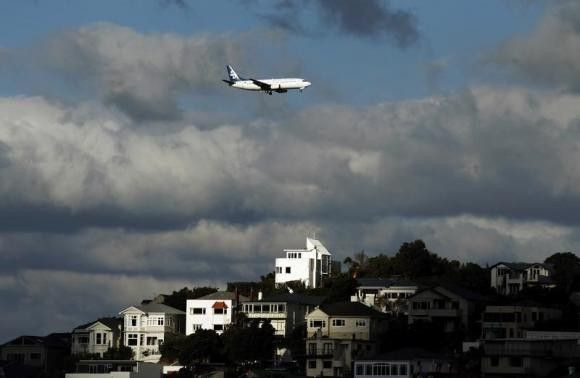New Zealand Warned To Brace For 'Worst' Drought In A Long Time

New Zealand will be facing a drought if rain does not fall soon. The country's weather bureau has warned that the rainless weather was a cause for concern.
National Institute of Water and Atmospheric Research Climate Scientist Dr Andrew Tait said that the soil moisture across the country has declined to lower-than-average levels. As a precaution, irrigation restrictions were set in some areas of Canterbury and North Otago, the New Zealand Herald reports.
The NIWA scientist believes New Zealand could be facing one of the worst national droughts the country has seen if no significant rainfall will happen in the next month or so. DairyNZ spokesperson Craig McBeth said extremely dry conditions were experienced in Canterbury, North Otago and South Wairarapa, while the rest of New Zealand has drier-than-usual soil moisture levels.
McBeth added that the country is in desperate need of rain to reduce the risk of a dry summer becoming more extreme in terms of temperature. Philip Duncan, a spokesperson for WeatherWatch, said rain is expected to fall on New Zealand's West Coast during the weekend and may possibly reach Canterbury. However, Wairarapa will continue to remain dry based on the current forecast.
The West Coast is predicted to experience average rainfall for the rest of the month, while everywhere else is expected to be below average. Duncan said farmers might be concerned about the lack of rain as crop yield will be affected.
Reports of dry conditions have prompted fire danger levels to increase to extreme levels across the country. In the Bay of Plenty, authorities have suspended the issuance of new fire permits as it is now in extreme fire danger. Otago currently has a total fire ban despite the recent rain.
According to Stuff.co, total fire bans were also imposed across Canterbury, including Christchurch, Banks Peninsula, Hurunui, Selwyn and Waimakariri. Total bans would mean no outdoor fires are allowed including those for pest or disease control. Only fires from commercial and gas-fuelled devices like barbecues, smokes and stoves will be permitted.




















